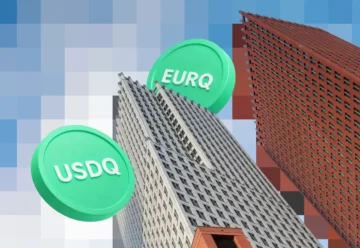DBS and JPMorgan Develop Interbank Blockchain Transfer System

Singapore’s DBS Bank and JPMorgan’s blockchain division began developing infrastructure for instant interbank cross-chain transfers using tokenized deposits.
DBS Bank and Kinexys by J.P. Morgan announced a joint initiative to create a technological foundation ensuring interoperability between their blockchain platforms, DBS Token Services and Kinexys Digital Payments. The project aims to simplify interbank transfers and settlements of tokenized deposits across public and private blockchains, allowing banks to execute mutual payments in real time without geographical restrictions.
Currently, both financial institutions provide their clients with 24/7 liquidity and instant settlements within their respective blockchain ecosystems. The new project will establish so-called “interoperability highways” between the two banks’ systems, linking private and public blockchain networks. This will enable institutional clients of DBS and JPMorgan to conduct mutual payments and exchange tokenized deposits instantly and without intermediaries.
For instance, a JPMorgan client could pay a DBS client using JPMD deposit tokens on the Base blockchain, and the recipient could redeem or exchange them through DBS Token Services. This approach preserves the “singleness of money,” the principle that tokenized deposits from different banks and networks should remain interchangeable and represent the same value.
Rachel Chew, Group Chief Operating Officer at DBS Bank, noted that the ability to make instant, around-the-clock payments enhances business flexibility and supports growth amid global uncertainty. She emphasized that interoperability is a key factor in reducing fragmentation in the digital financial ecosystem and enabling secure cross-border transactions using tokenized assets.
Naveen Mallela, Global Co-Head of Kinexys, stated that collaboration with DBS demonstrates how major financial institutions can jointly develop next-generation infrastructure, ensuring the compatibility and reliability of tokenized settlements on a global scale.
The Bank for International Settlements (BIS) urged central banks to lead the transition toward a tokenized financial system based on unified ledgers, describing it as the foundation of the future global monetary and financial architecture, while simultaneously criticizing stablecoins.











